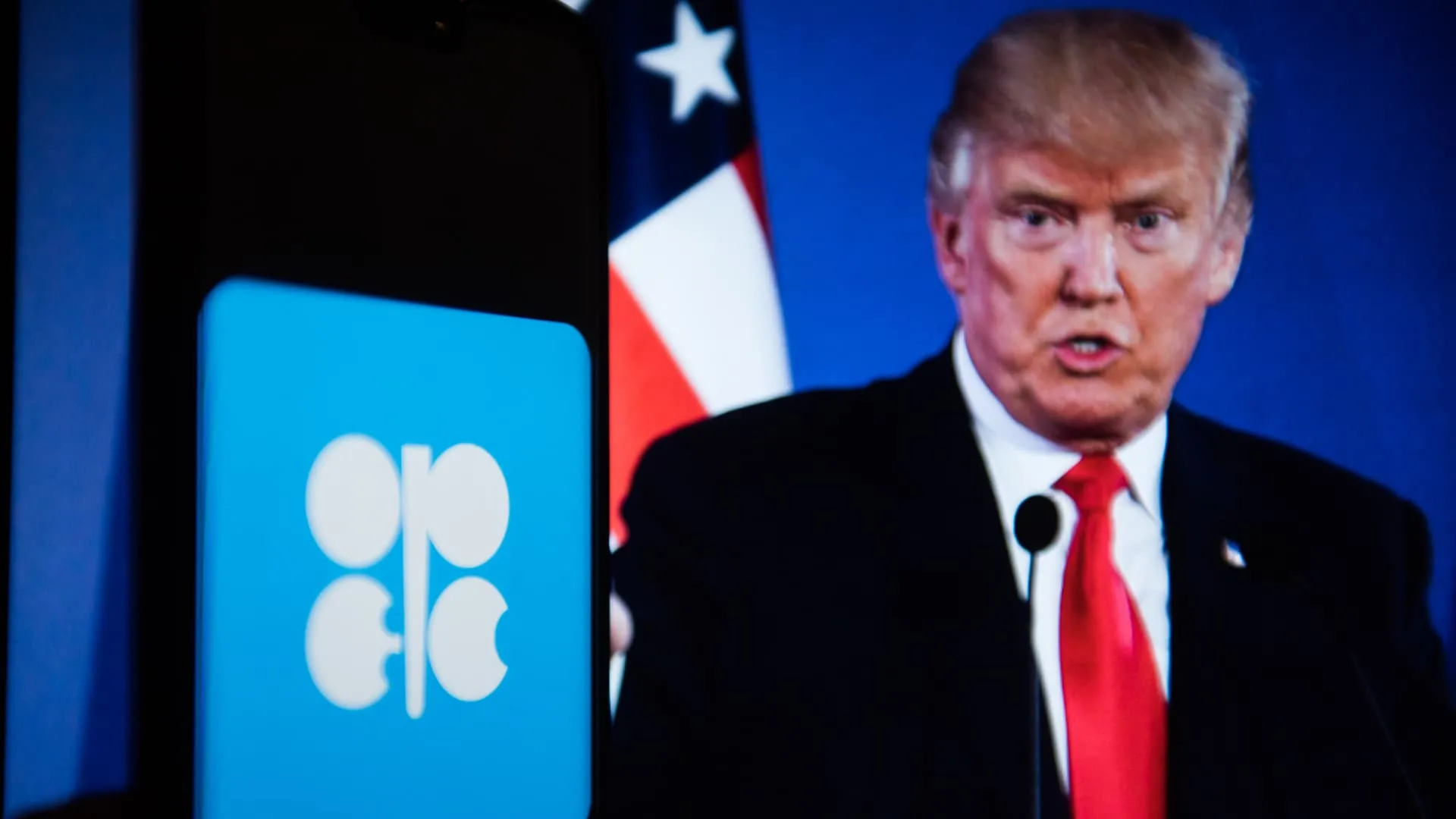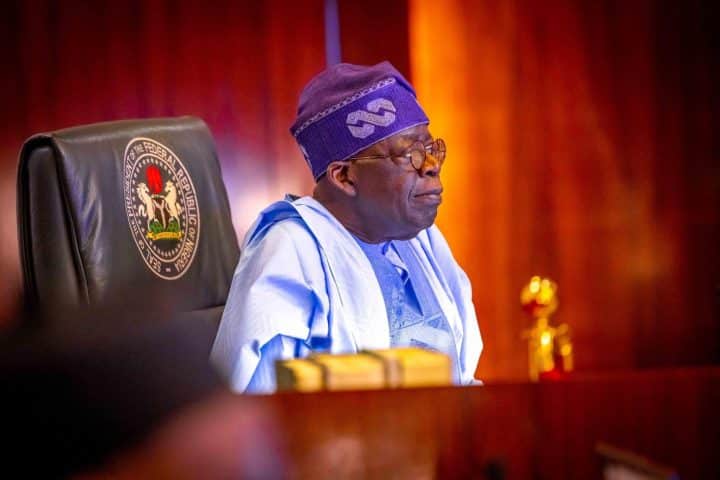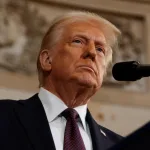At the World Economic Forum in Davos, Switzerland, former U.S. President Donald Trump urged Saudi Arabia and OPEC to take immediate steps to reduce oil prices. Addressing global leaders and energy experts, Trump said, “The current oil prices are too high. I am calling on OPEC to bring them down. It’s time they step up and provide some relief.”
Trump’s remarks came as oil prices fell 1% on Thursday, reflecting concerns about global economic growth and energy demand. Brent crude dropped 71 cents to settle at $78.29 per barrel, while U.S. West Texas Intermediate (WTI) crude fell 82 cents to $74.62 per barrel.
Join our WhatsApp ChannelTrump Criticises High Oil Prices
During his address, Trump criticised OPEC for allowing prices to remain high. “Consumers are paying too much at the pump. Families and businesses are struggling because of these prices. OPEC must act responsibly,” he said.
Clay Seigle, a senior fellow for energy security at the Center for Strategic and International Studies, noted that Trump’s push for lower prices may not sit well with the U.S. oil industry. “Trump’s call for lower oil prices will naturally be welcomed by consumers and businesses but received warily by the U.S. oil industry and other global suppliers,” Seigle said.
Concerns About Global Energy Investments
Energy analysts expressed concerns about the broader implications of reducing oil prices. “The energy industry has been calling for increased investments in global oil and gas projects, but bringing down oil prices could raise concerns about the economics of new projects,” Seigle added.
READ ALSO: U.S. Judge Blocks Trump’s Order Restricting Birthright Citizenship
Meanwhile, U.S. crude oil stockpiles fell to their lowest level since March 2022, according to the Energy Information Administration (EIA). Despite the decline, the drawdown was smaller than expected, with gasoline inventories rising while distillate stocks decreased.
Uncertainty Over Tariffs and Energy Policies
Trump also addressed U.S. energy policies and trade tariffs during his speech. “We’re exploring new tariffs to ensure fair trade. If countries like China and Russia don’t cooperate, we will take strong action,” Trump stated.
He proposed a 10% punitive duty on China due to fentanyl exports and threatened additional tariffs on the European Union, Canada, and Mexico. “We have to protect American workers and industries. These tariffs are about fairness,” he said.
Market analysts believe these uncertainties could impact global oil demand. Priyanka Sachdeva, senior market analyst at Phillip Nova, explained, “The broader economic implications of U.S. tariffs could further dampen global oil demand growth.”
Experts Predict Volatility in Oil Markets
Trump also declared a national energy emergency earlier this week, aiming to ease restrictions on energy infrastructure and streamline permitting for new projects. Despite this move, analysts remain cautious about the oil market’s future.
Kelvin Wong, a senior market analyst at OANDA, commented, “There will be more potential downward choppy movement in the oil market in the near term due to the Trump administration’s lack of clarity on trade tariffs policy and impending higher oil supplies from the U.S.”
As the global energy landscape faces growing challenges, Trump’s call for lower oil prices highlights the ongoing debate over balancing consumer needs, industry sustainability, and international economic stability
Emmanuel Ochayi is a journalist. He is a graduate of the University of Lagos, School of first choice and the nations pride. Emmanuel is keen on exploring writing angles in different areas, including Business, climate change, politics, Education, and others.
- Emmanuel Ochayihttps://www.primebusiness.africa/author/ochayi/
- Emmanuel Ochayihttps://www.primebusiness.africa/author/ochayi/
- Emmanuel Ochayihttps://www.primebusiness.africa/author/ochayi/
- Emmanuel Ochayihttps://www.primebusiness.africa/author/ochayi/



















